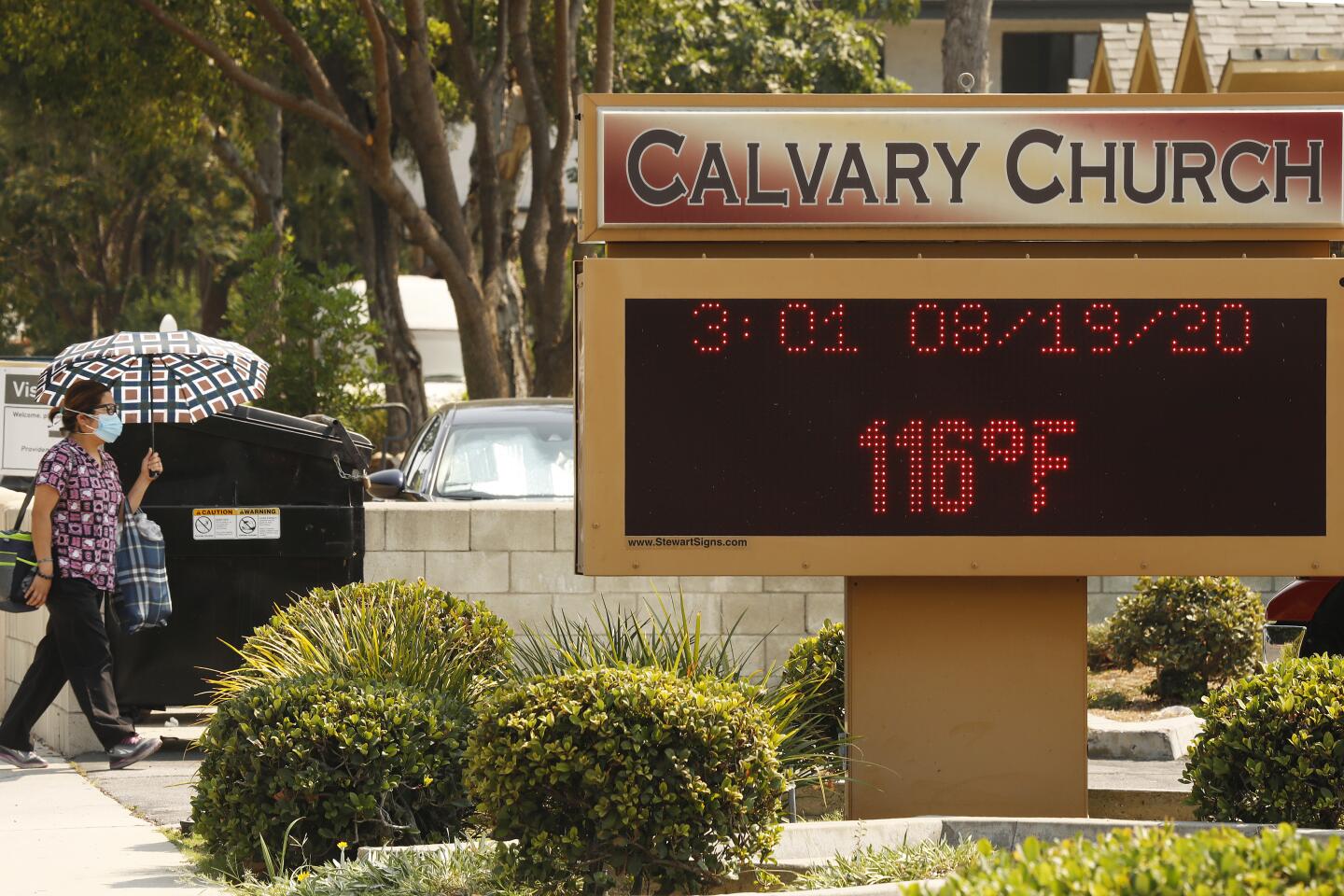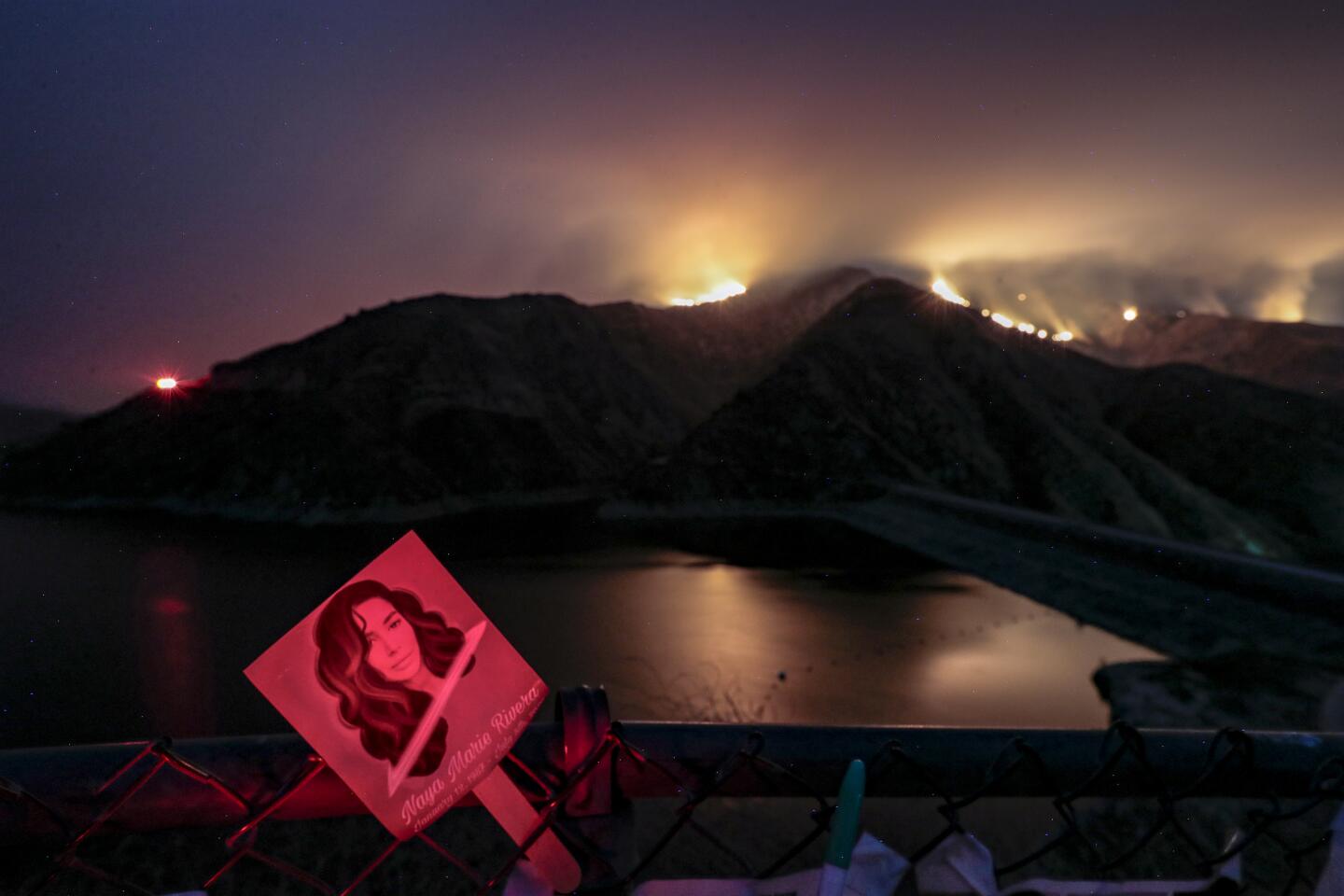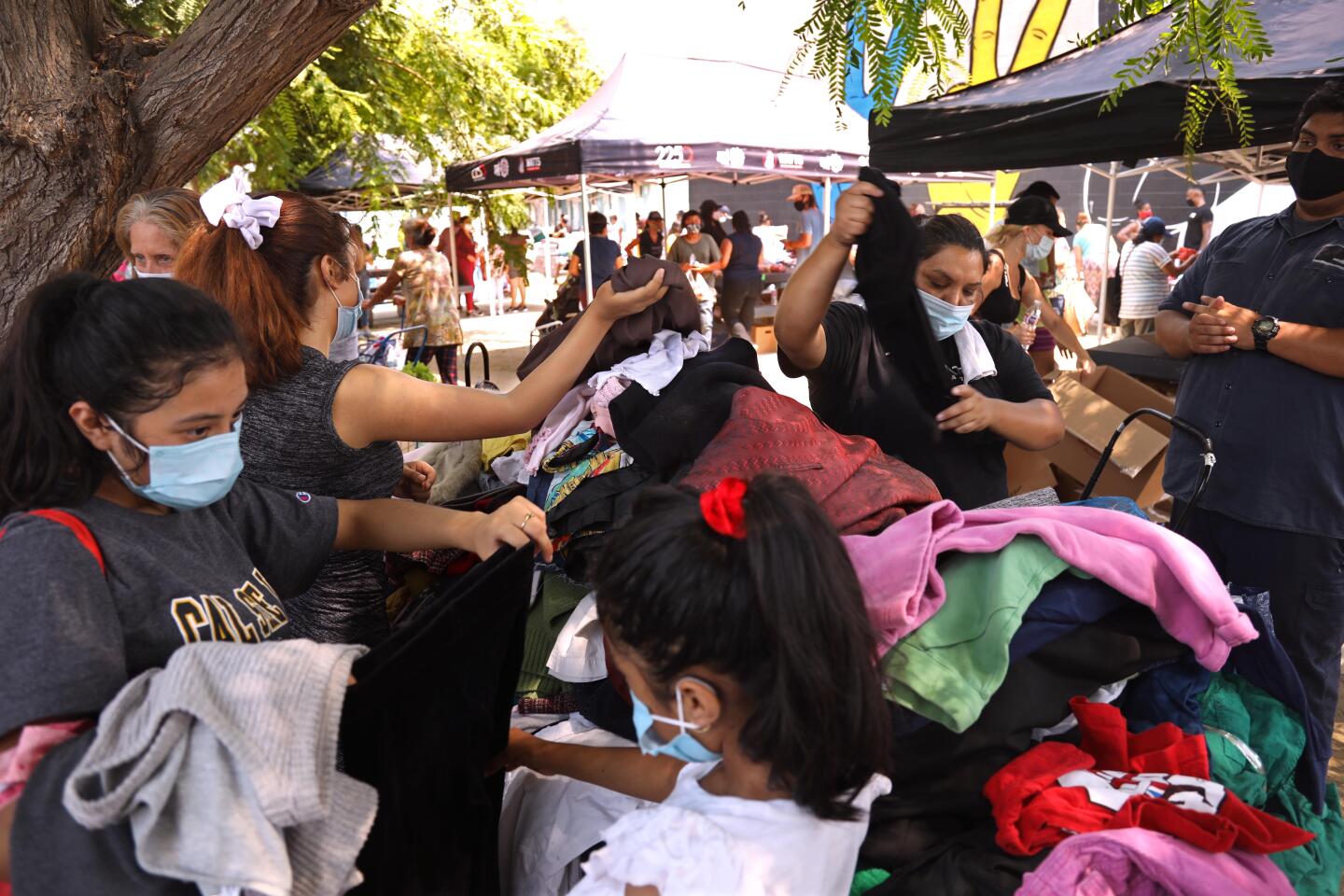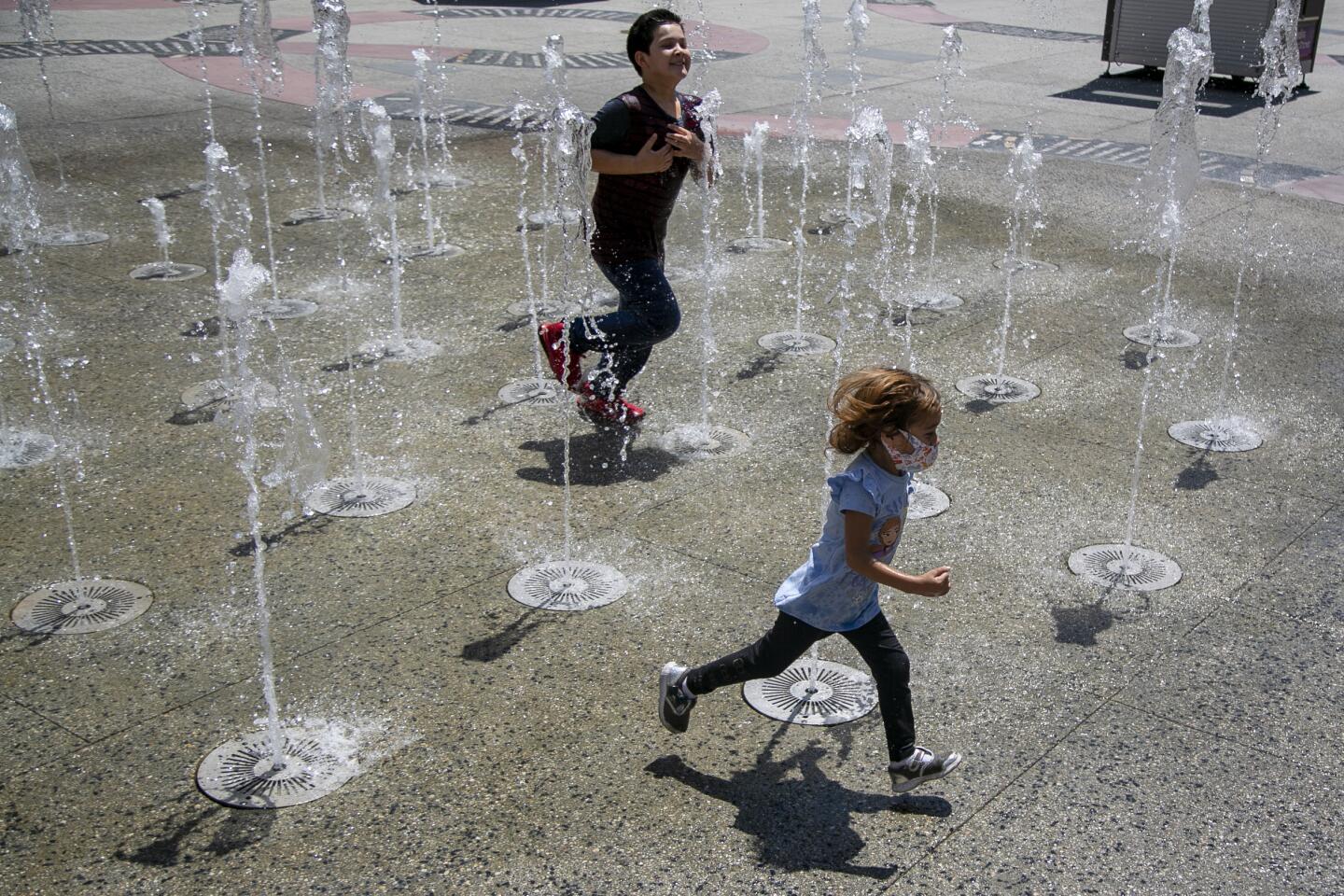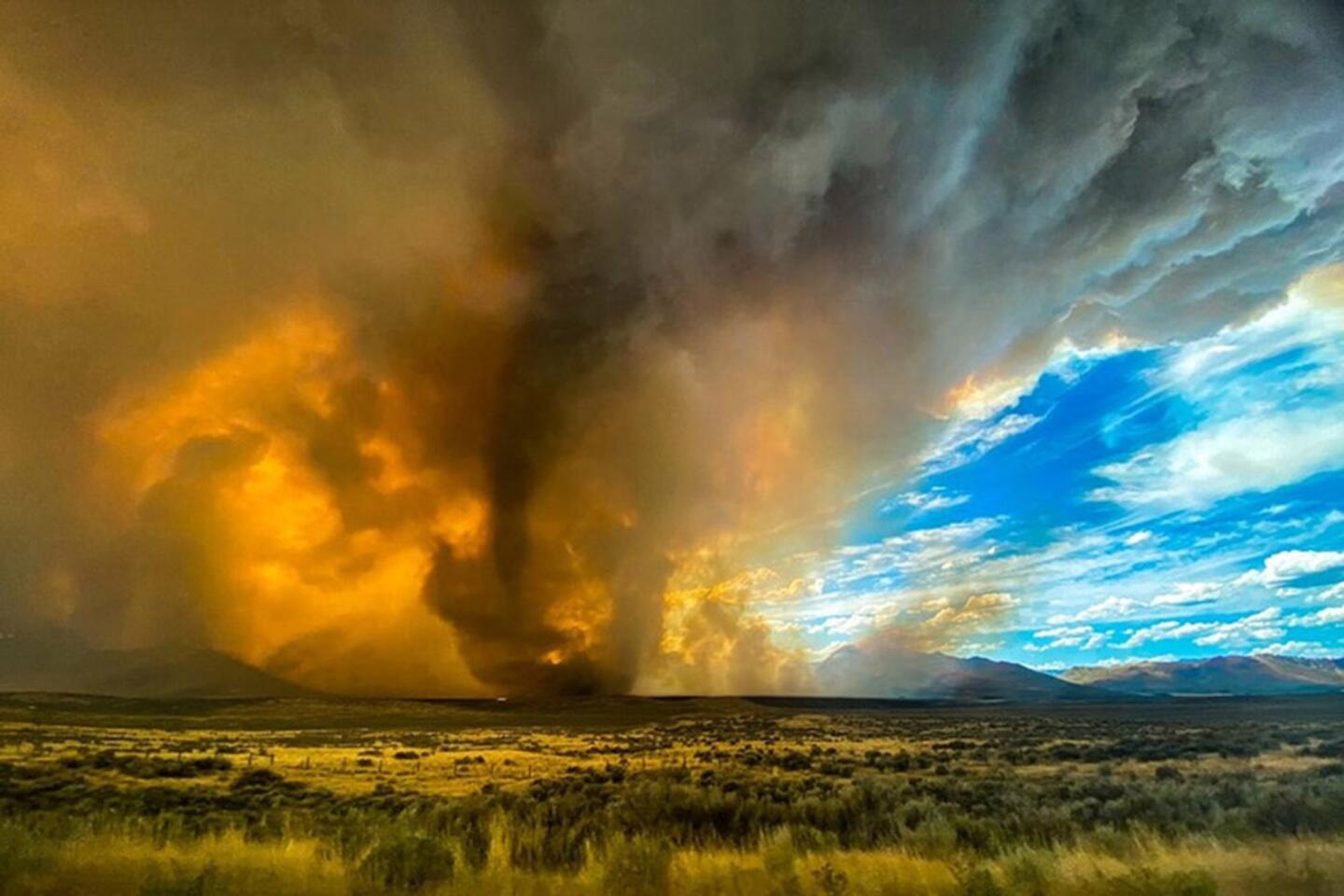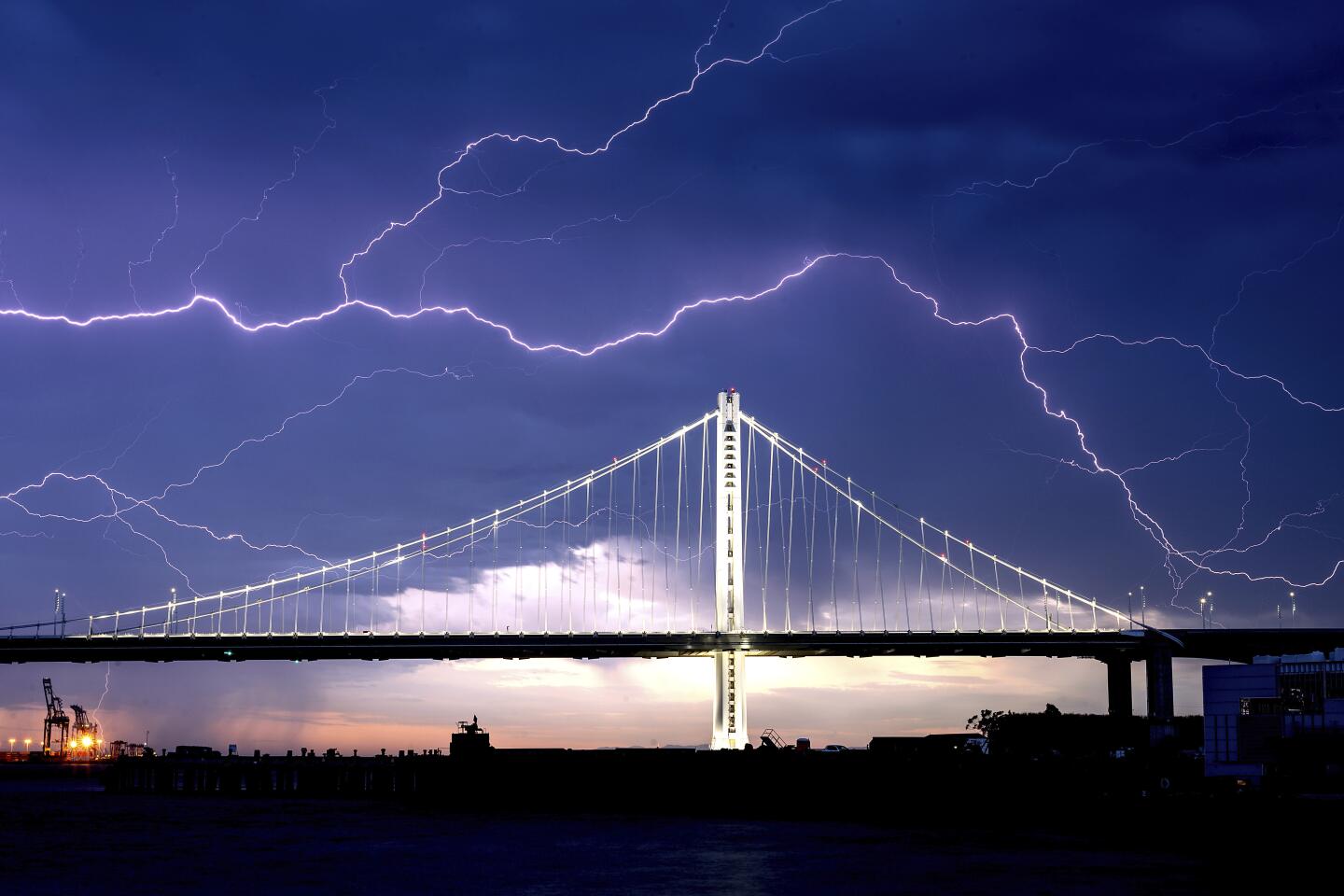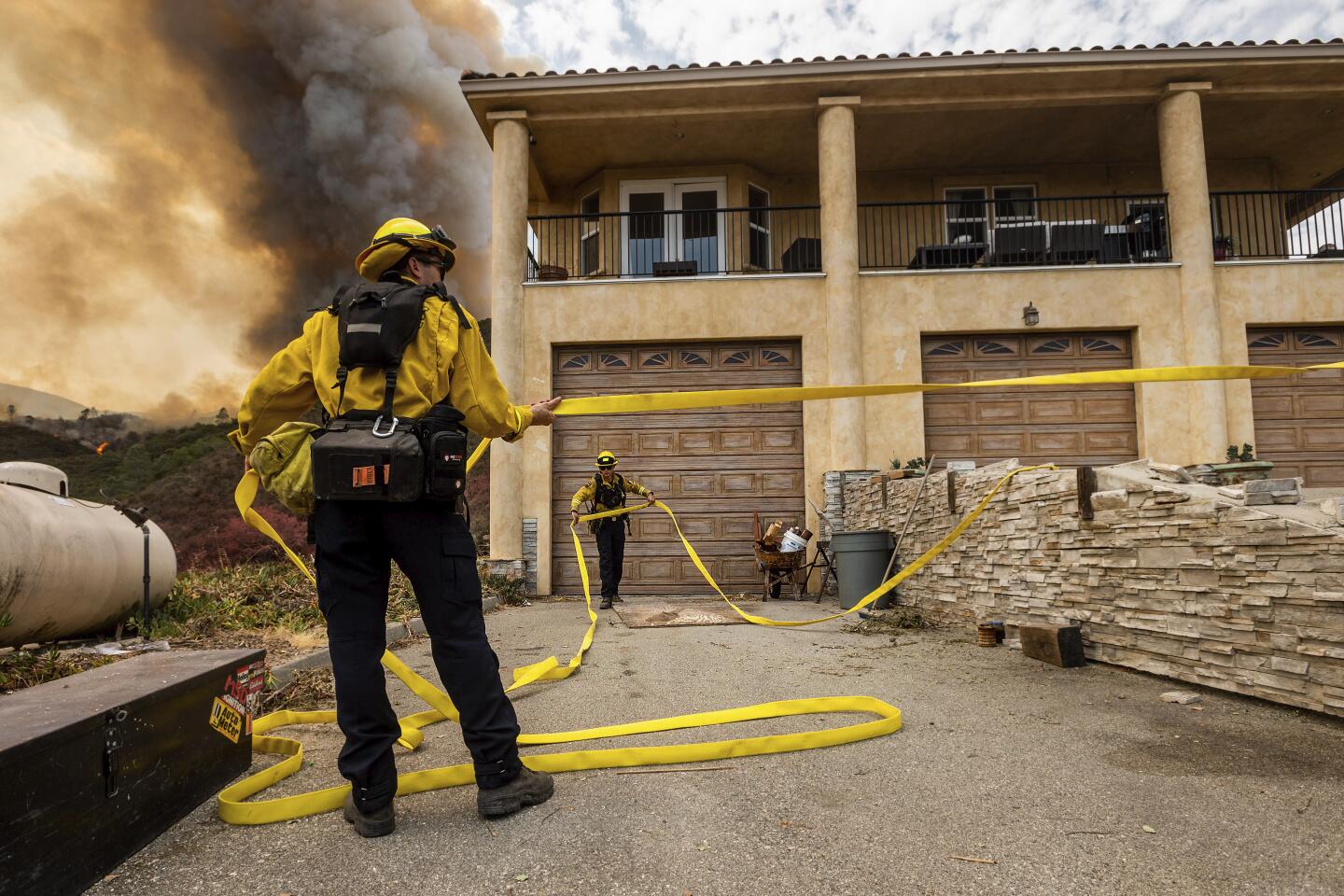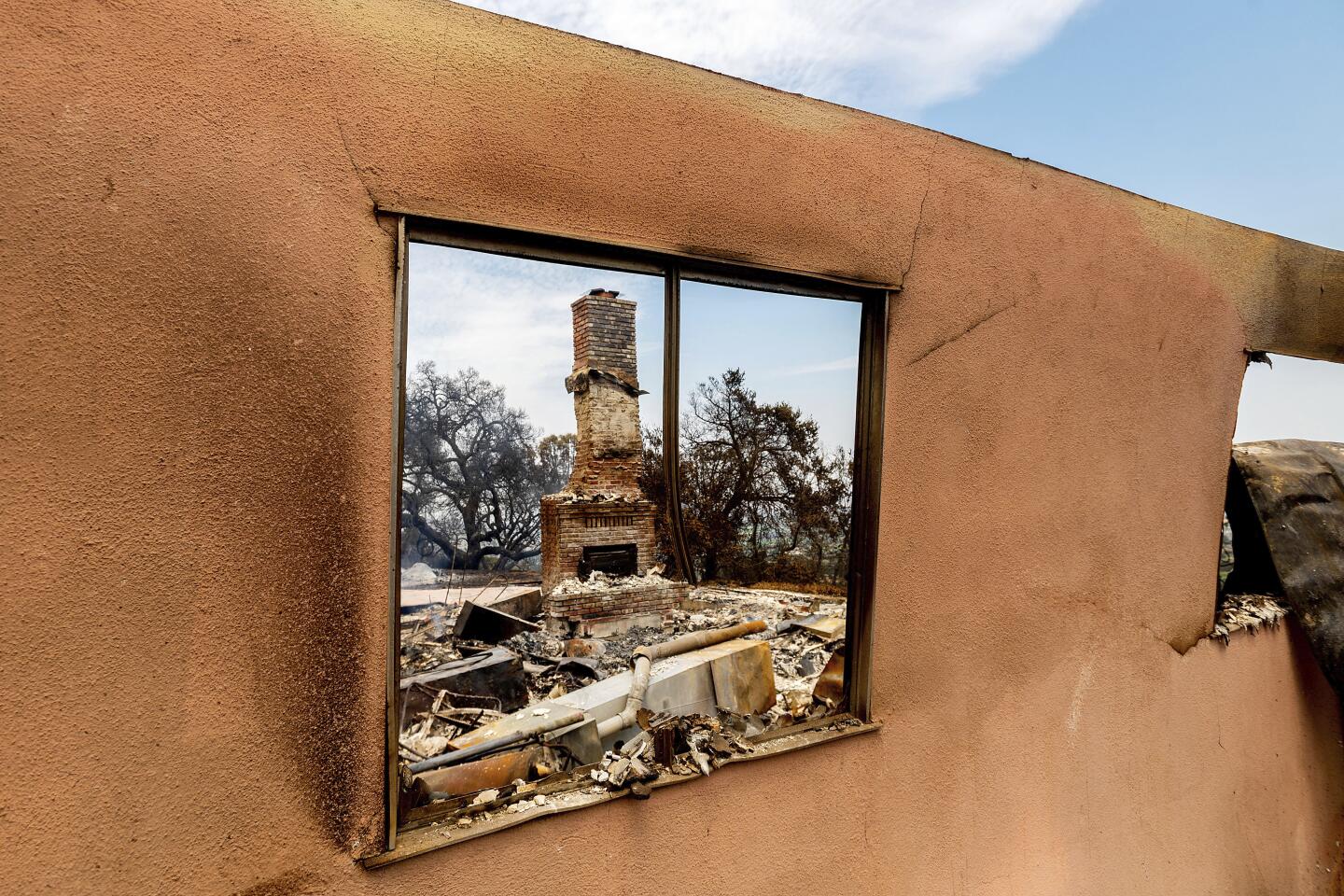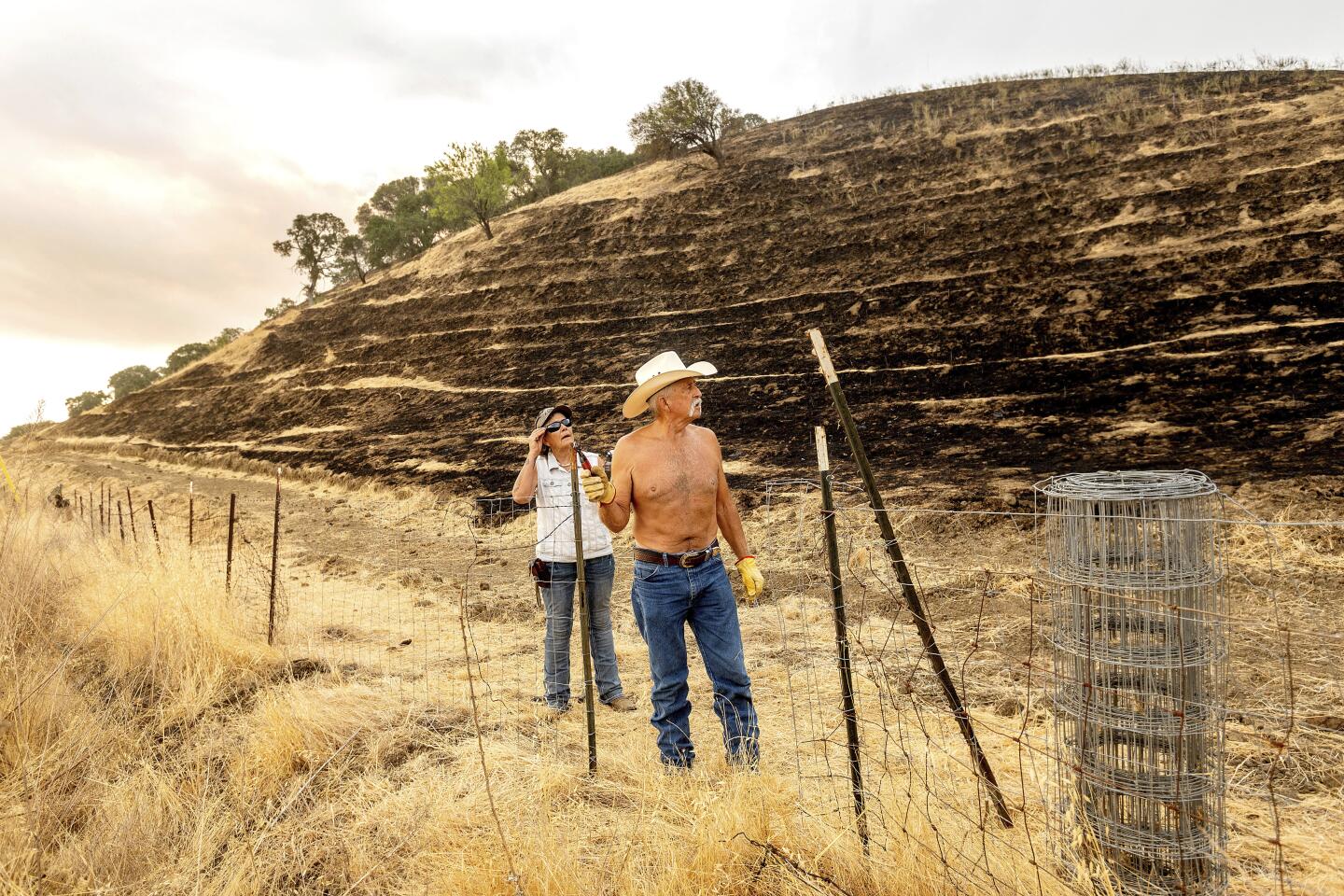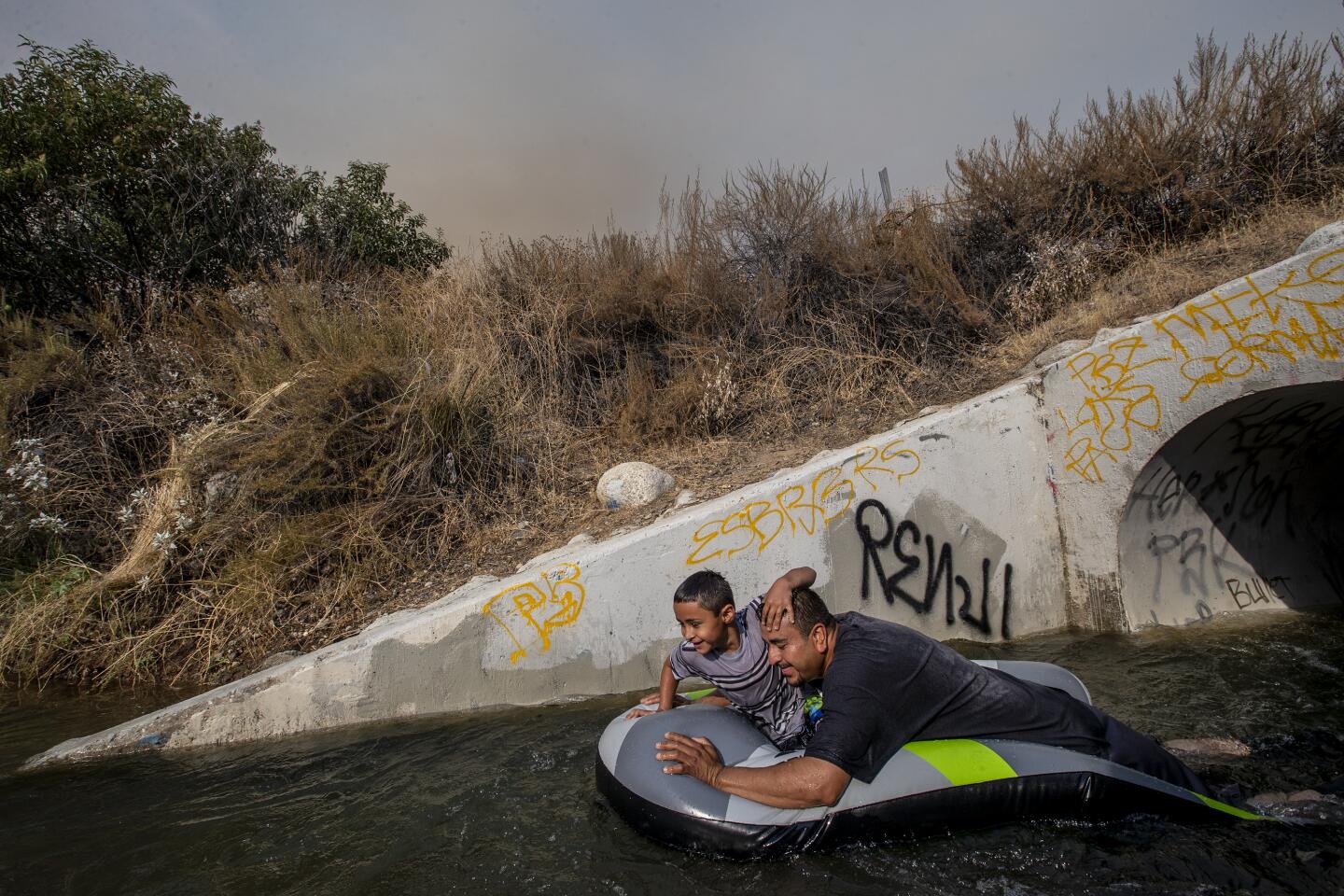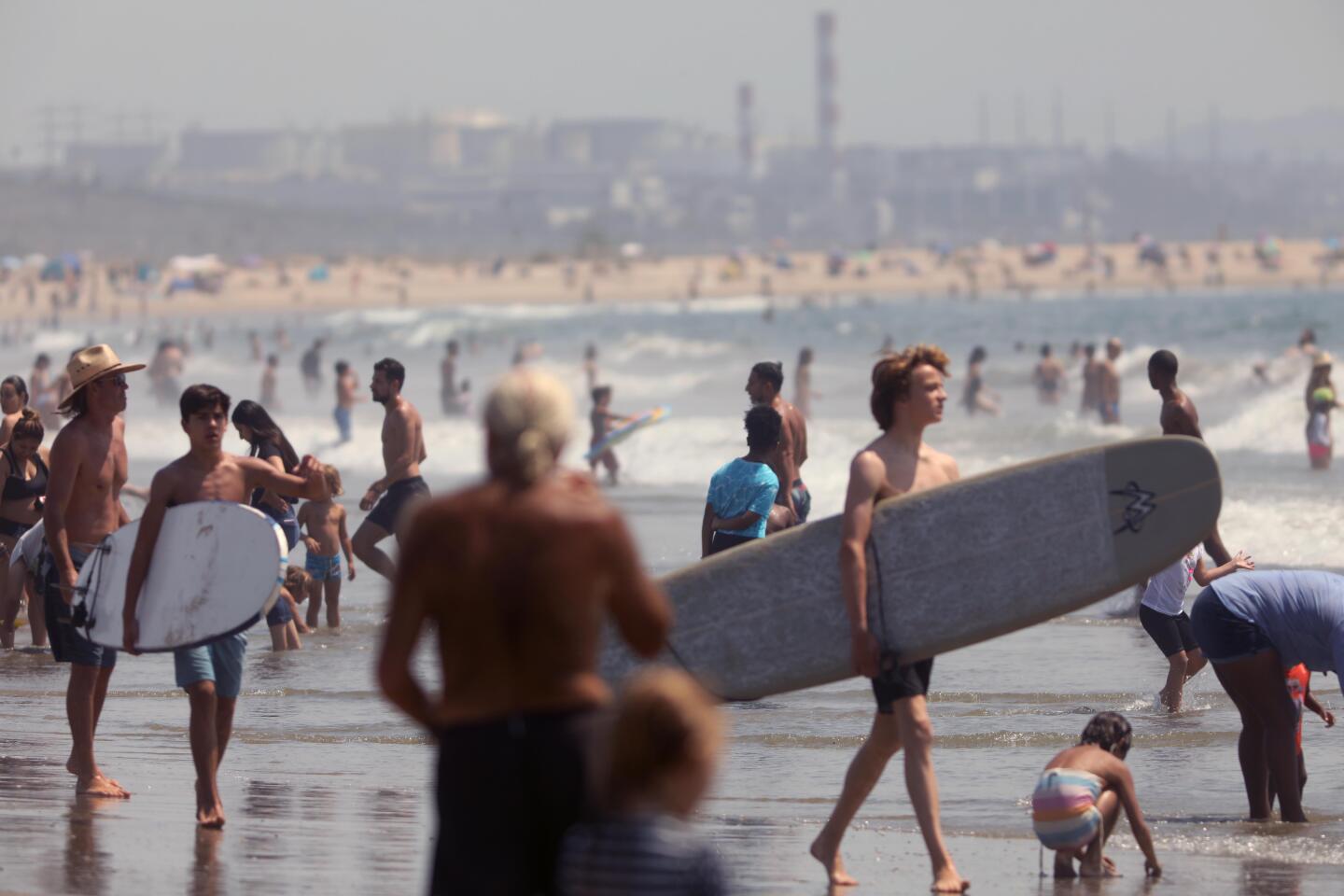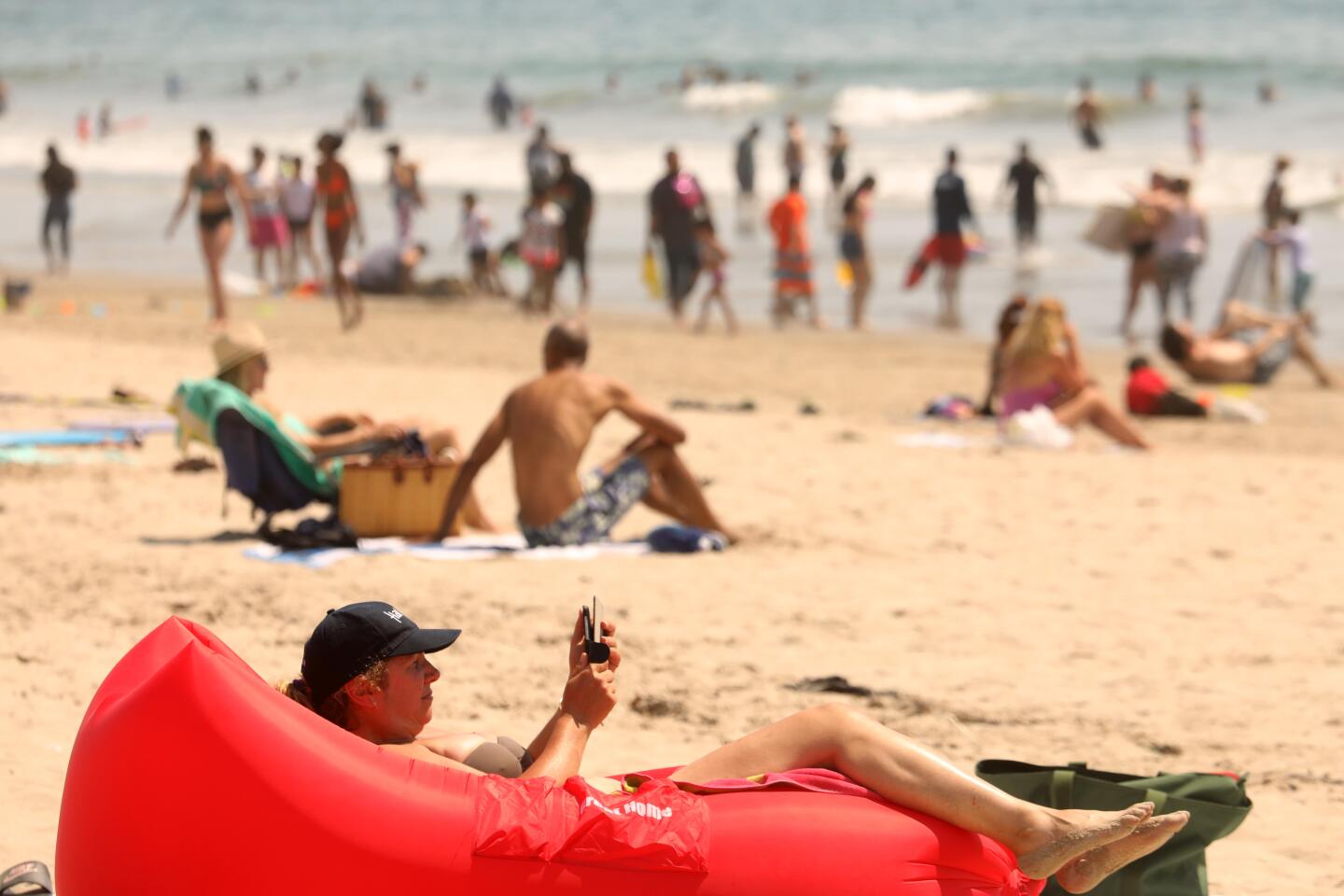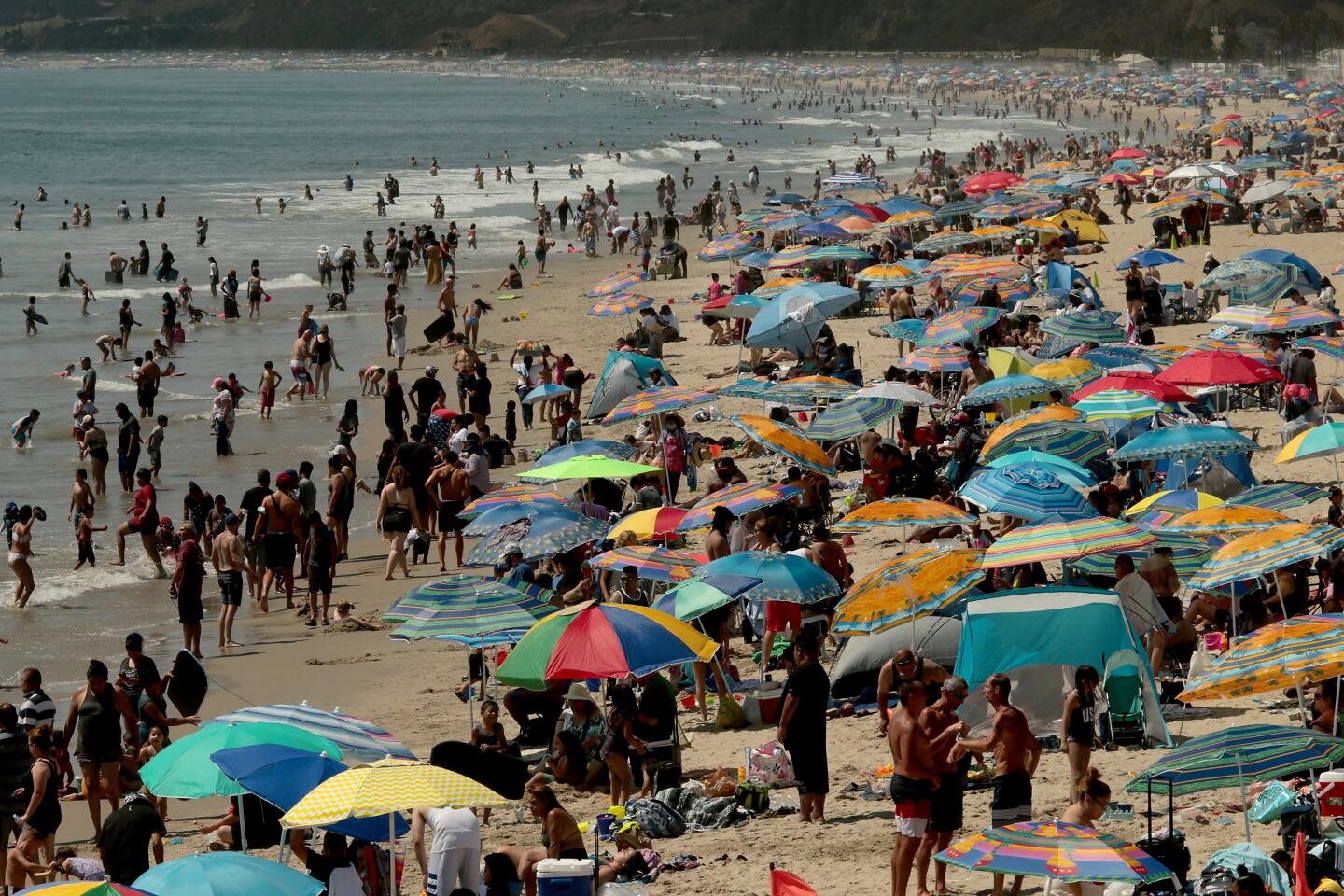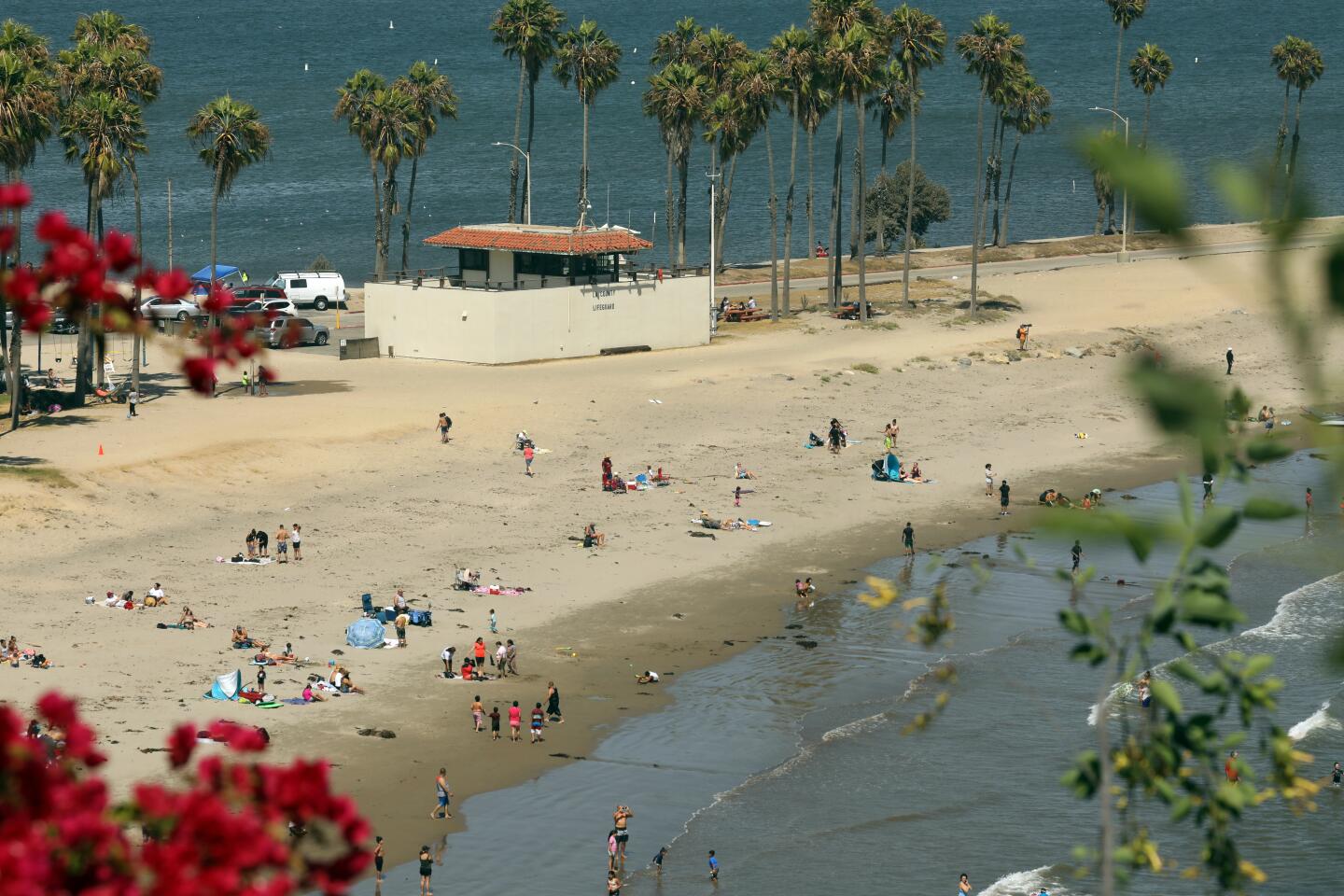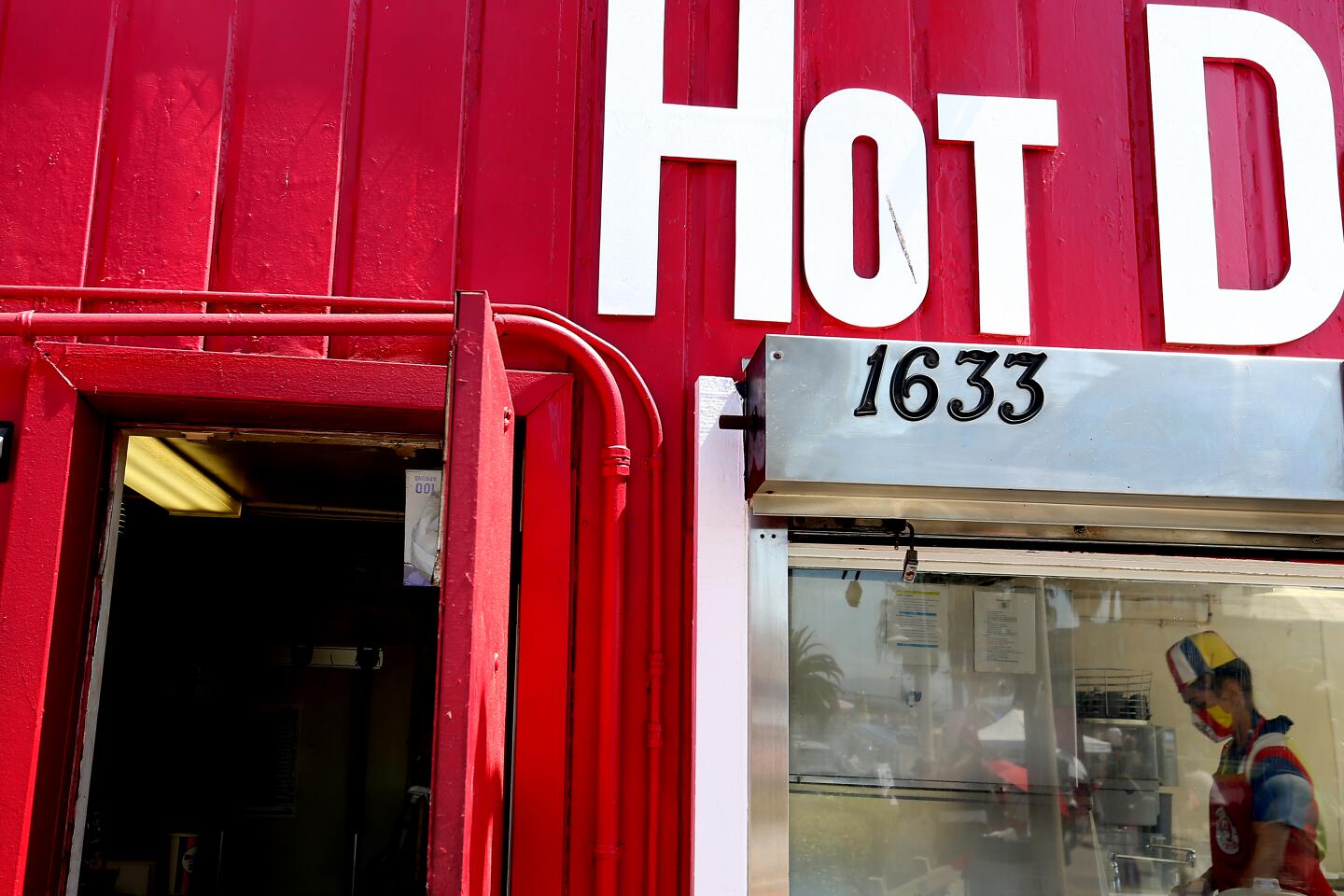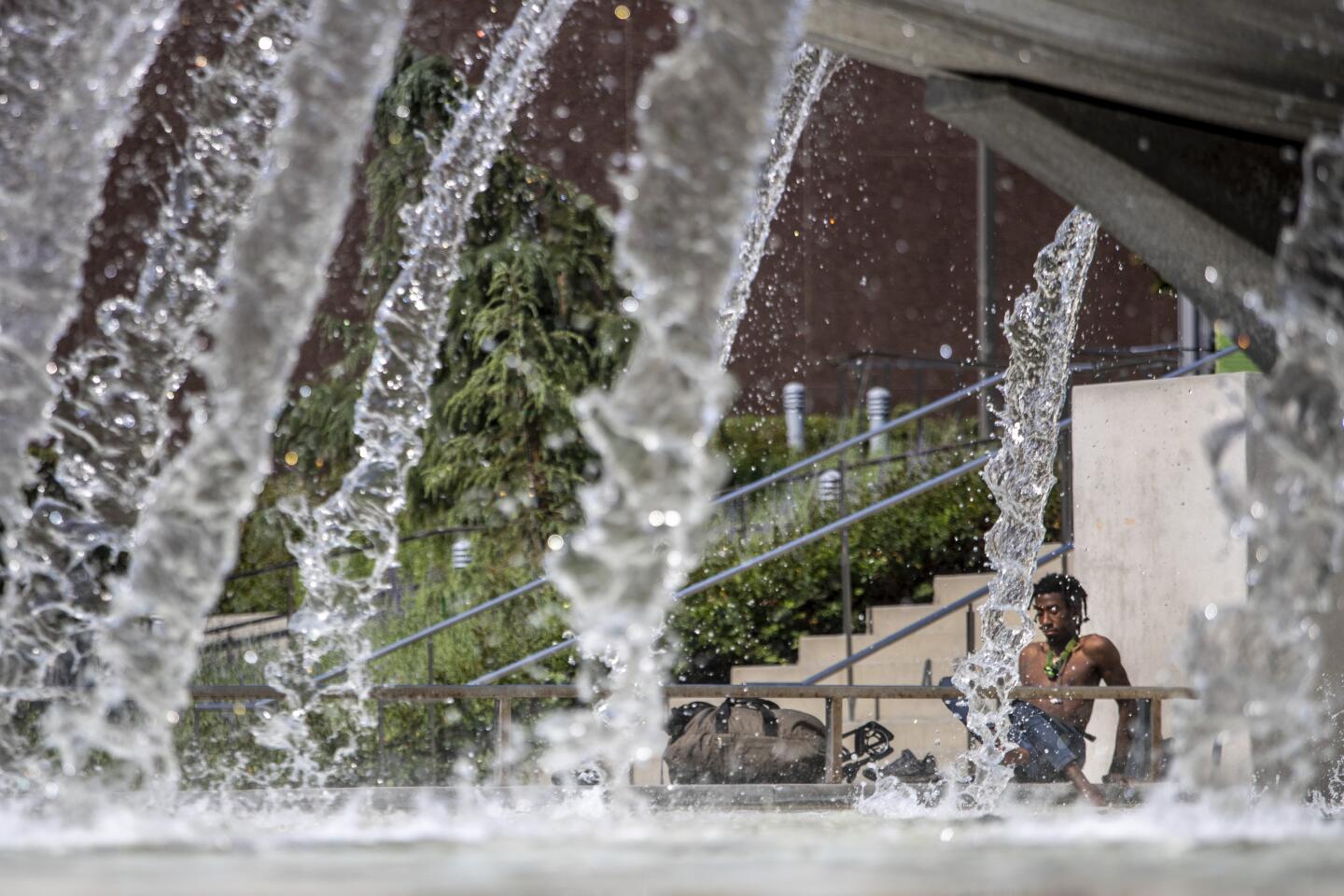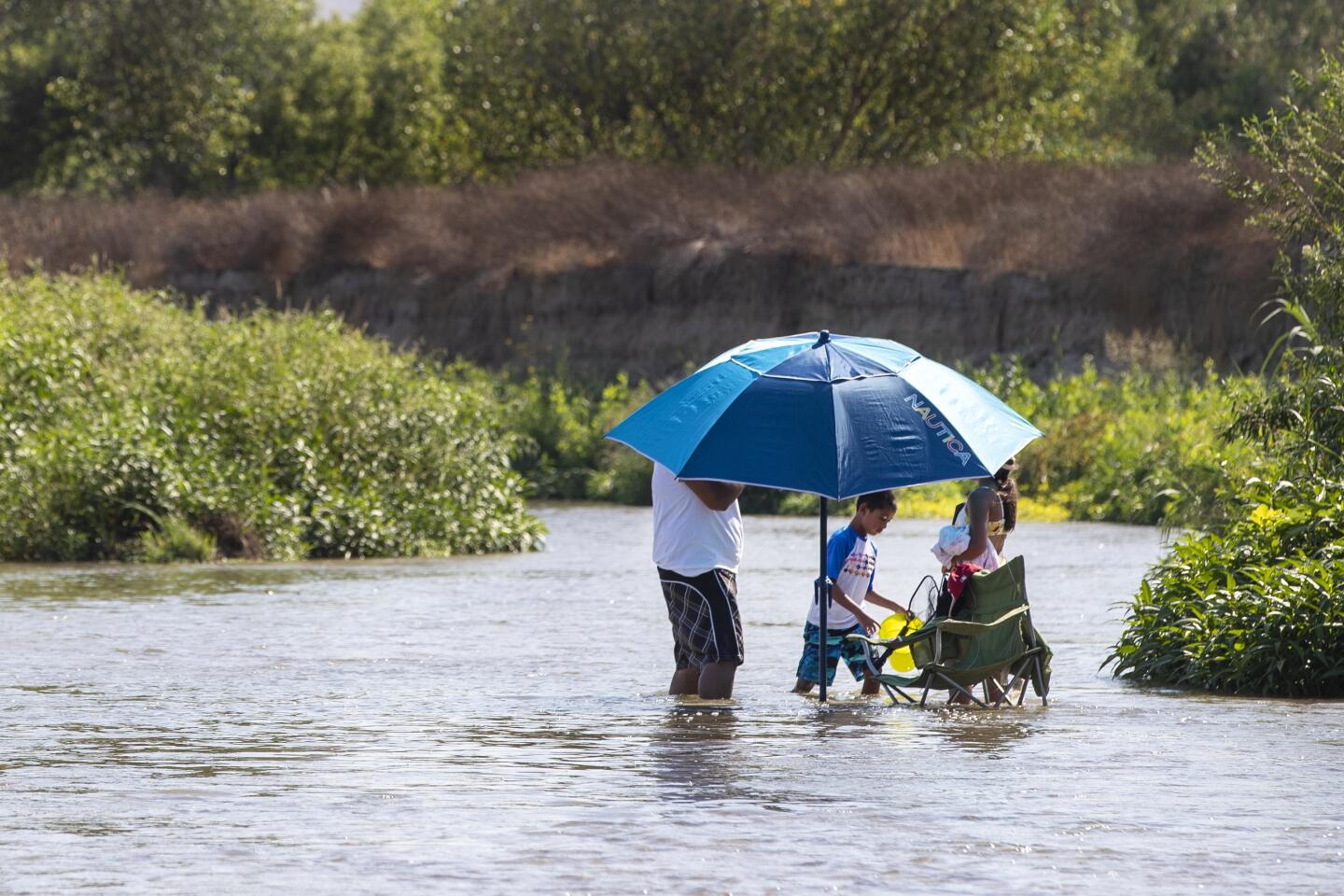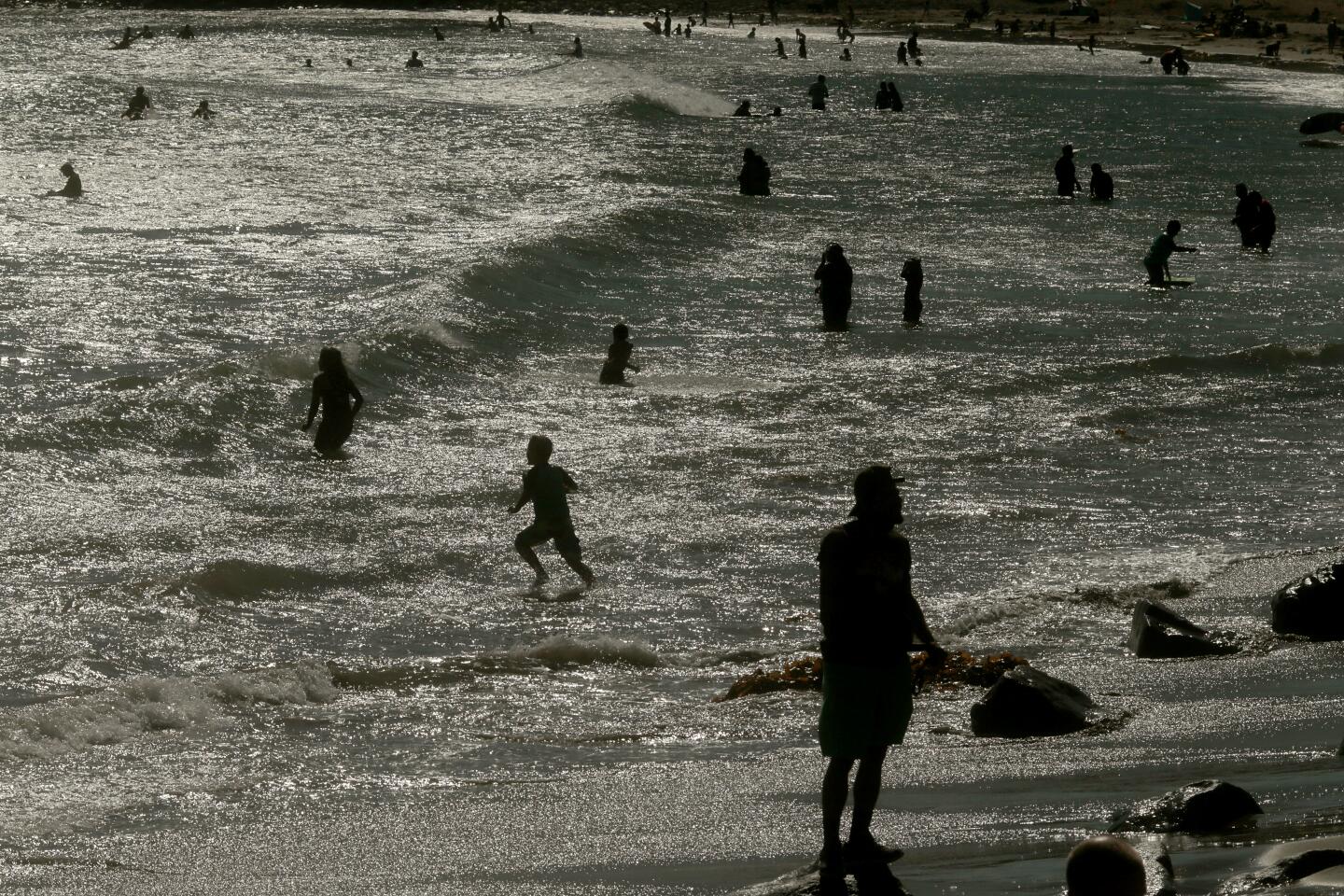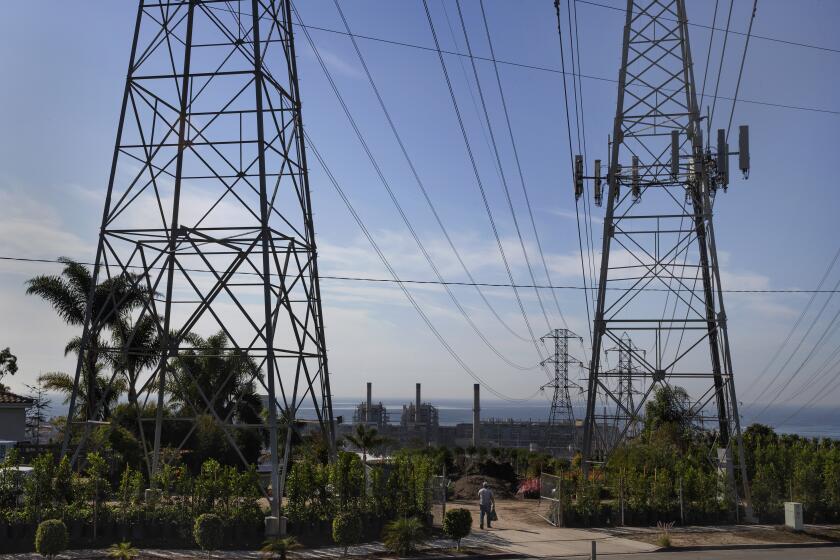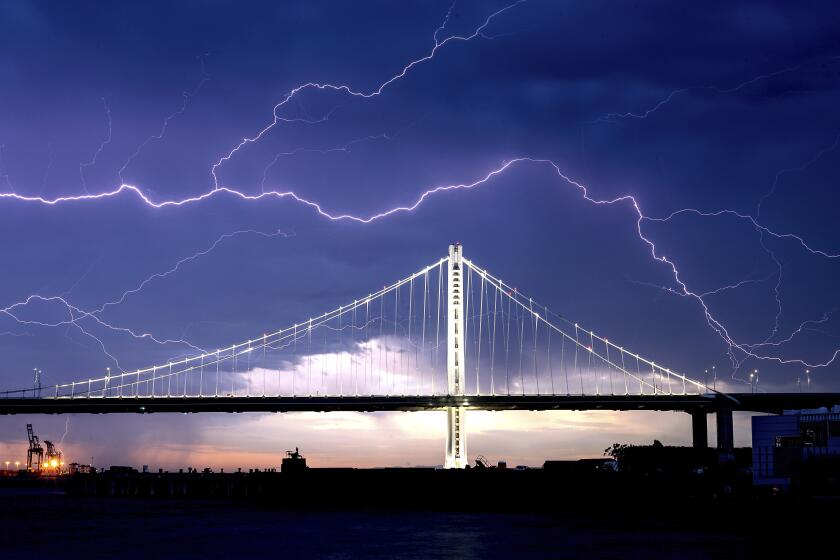For second day in a row, rolling blackouts across California are averted
- Share via
For the second day in a row, the California Independent System Operator called off power outages that had been anticipated statewide, crediting conservation efforts by consumers.
With an extreme heat wave continuing across California, officials had said more rolling blackouts were imminent Tuesday as state officials struggled to secure additional electricity amid the worst power crisis in nearly 20 years.
On Tuesday afternoon, Cal-ISO, which runs the electric grid for most of the state, declared a Stage 2 emergency — one of several it has issued over the last week — asking customers to save energy in order to avoid rotating power outages later in the day. The emergency was canceled at 7:37 p.m.
In a statement, the corporation said that in addition to consumer conservation efforts, the ISO grid had benefited from some imported energy and resources from wind plants.
“Californians made tonight a success,” said Cal-ISO President Steve Berberich. “Everyone pulled together and responded to our warning with action to avoid any interruption in electricity supplies.”
On Monday, officials had warned of blackouts affecting as many as 3 million people, but officials ended up canceling the warning, saying improved weather conditions and conservation efforts reduced demand on the power grid.
During a news briefing Tuesday afternoon, Berberich had credited the lack of any energy disruption Monday to customers and companies who avoided excessive power use, which flattened about 3 p.m. Gov. Gavin Newsom had instructed residents to reduce consumption between 3 p.m. and 10 p.m.
“We were ready, and we’re glad the weather and energy supply situation improved so Cal-ISO did not have to call for rotating outages,” said Pacific Gas & Electric spokesman Paul Moreno on Monday. “We appreciated our customers big and small who answered the call and conserved energy in our service area and across the state. We will need customers to conserve again.”
The Los Angeles Department of Water and Power did not institute rolling power outages either on Tuesday and provided excess power to Cal-ISO. Still, about 12,000 of its 1.5 million customers have been affected by outages — mostly for heat-related reasons such as overloaded equipment.
“This is not about power supply to the city — we have adequate supply to the city,” spokesman Joe Ramallo said.
“It’s near certain that we will be forced to ask the utilities to cut off power to millions today to balance supply and demand — today, tomorrow and perhaps beyond.”
Officials said Tuesday that California has had less energy capacity since 2006, when a major heat wave hit the state, followed by another in 2017.
Some relief is likely to come by Wednesday, when temperatures are expected to dip, but officials don’t have a longer-term forecast for the coming weeks.
Newsom on Monday called the power crisis unacceptable and pledged a full investigation into the cause of the shortage.
“We’ve always maintained that, a golden oldie, you can’t control the weather, but you can prepare for the weather events,” he said. “And let me just make this crystal clear: We failed to predict and plan [for] these shortages, and that’s simply unacceptable.”
He framed the shortage as a consequence of the state’s transition from polluting gas plants to cleaner sources of energy and said the high demand placed on the grid because of the record heat over the last few days has exposed “gaps in terms of that reliability.”
“We cannot sacrifice reliability as we move forward in this transition,” he said. “And we’re going to be much more aggressive in focusing our efforts and our intention in making sure that is the case.”
Cal-ISO, the state’s power grid operator, blamed the Public Utilities Commission for the shortage. Officials described a “perfect storm” of conditions that caused demand to exceed available supply: scorching temperatures in California and across the western U.S., diminished output from renewable sources and fossil-fueled power plants affected by the weather, and in some cases, plants going offline unexpectedly when electricity was needed most.
But Berberich said the state could have been prepared if the utilities commission had ordered companies to line up sufficient power supplies.
Asked about the criticism, PUC spokeswoman Terrie Prosper said the agency was “working with our sister agencies to better understand why this occurred.”
As one of the worst heat waves in years continues to broil California, millions are experiencing the havoc that ensues with the type of extreme weather that is growing more frequent with climate change.
Meanwhile, communities in Southern California hit record temperatures Tuesday — including Woodland Hills, UCLA, and Oxnard.
The extreme heat and dry lightning have also sparked numerous fires across the state. Newsom’s office declared a state-wide emergency to help California respond to the fires, saying that the state had secured assistance this week from the Federal Emergency Management Agency to fight fires in Napa, Nevada and Monterey counties.
Times staff writer Colleen Shalby contributed to this report.
More to Read
Sign up for Essential California
The most important California stories and recommendations in your inbox every morning.
You may occasionally receive promotional content from the Los Angeles Times.
